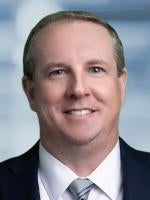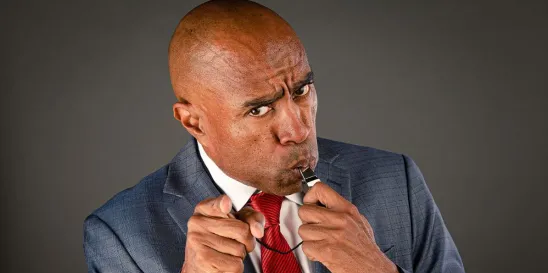On January 10, 2024, U.S. Attorney Damian Williams announced the Whistleblower Pilot Program (Program) for the U.S. Attorney’s Office (USAO) of the Southern District of New York (SDNY) to encourage self-reporting and cooperation by individuals exposed to criminal liability for certain conduct. The Program, which offers individuals a pathway to a non-prosecution agreement (NPA), is part of the larger Department of Justice (DOJ) effort to emphasize self-disclosure and transparency as significant enforcement tools. The Program, unlike other DOJ initiatives, applies to individuals, not companies, and, therefore, potentially creates a race of individuals against companies that are trying to “get on the right side of the law,” in U.S. Attorney Williams’s words.
Qualification for an NPA
As a threshold matter, the Program only applies to certain criminal conduct. The self-reported information must regard “criminal conduct undertaken by or through public or private companies, exchanges, financial institutions, investment advisers, or investment funds involving fraud or corporate control failures or affecting market integrity, or criminal conduct involving state or local bribery or fraud relating to federal, state, or local funds.” The Program does not apply to conduct regarding the Foreign Corrupt Practices Act, federal or state campaign finance laws, federal patronage crimes, election process corruption, or bribery of federal officials.
To qualify for an NPA for the relevant criminal conduct, an individual must meet six criteria:
- The misconduct has not been made public and is not already known to the SDNY USAO.
- The individual discloses the criminal conduct voluntarily and not in response to a government inquiry or obligation to report misconduct.
- The individual can provide substantial assistance in the investigation and prosecution of one or more equally or more culpable persons and is prepared to cooperate fully with the SDNY USAO in its investigation and prosecution of the disclosed conduct.
- The individual truthfully and completely discloses all criminal conduct in which the individual has participated and of which the individual is aware.
- The individual is not (a) a federal, state, or local elected or appointed and confirmed official, (b) an official or agent of a federal investigative or federal law enforcement agency, (c) a person who otherwise is, or is expected to become, of major public interest, or (d) the chief executive officer or equivalent or chief financial officer or equivalent of a public or private company.
- The individual (a) has not engaged in any criminal conduct that involves the use of force or violence, any sex offense involving fraud, force, or coercion of a minor, or any offense involving terrorism or implicating national security and (b) does not have a previous felony conviction or a conviction of any kind for conduct involving fraud or dishonesty.
Where an individual does not qualify under the above criteria, the SDNY USAO may exercise further discretion in granting an NPA when such an agreement is in the public interest and necessary for a given case. In this instance, the USAO will consider certain factors, including whether the conduct is public or known to the USAO, whether the disclosure is voluntary, whether the individual is able to provide substantial assistance in the USAO’s prosecution of equally culpable persons, whether the individual has been forthright in their disclosure, whether the individual occupies an official, leadership, or trusted position, whether available non-criminal sanctions are adequate, and whether the individual has a criminal history.
Key Takeaways
- Companies should expect an increase in investigations and prosecutions of misconduct from the SDNY USAO. The NPA provides a powerful incentive for individuals, and they are likely to use the Program to best protect themselves at the expense of companies with which they are associated.
- The Program and various DOJ corporate self-disclosure policies may create a race to the prosecutor’s office because each rewards the first reporter of criminal conduct. Presumably, once an individual reports criminal conduct under the Program, a corporation cannot qualify as a first reporter under, for example, the Mergers & Acquisitions Safe Harbor Policy. (For a discussion of this policy, see DOJ Announces Extension of Voluntary Self-Disclosure Guidance for Misconduct Discovered Through M&A Due Diligence.) As a result, companies and individuals may have misaligned interests, causing one to rush to report on the other.
- In light of the above, company counsel conducting an internal investigation may wish to consider any action—including a witness interview—that may give a wrongdoer sufficient notice to cause the wrongdoer to self-report before the company can complete its investigation and its own self-reporting. If a company anticipates self-reporting, it may wish to provide a preliminary report to claim first reporter status before interviewing the perceived individual wrongdoer and to supplement its report as it completes investigative activities that may give the wrongdoer notice.
- The Program places premiums on (i) an effective compliance program and internal controls designed to prevent and detect misconduct, (ii) whistleblower management—from an effective hotline to complainant engagement—and (iii) an efficient internal investigation to develop a comprehensive record and to foster informed decision making in light of the risk that the individual wrongdoer will report to the SDNY USAO before the company can do so, resulting in the company potentially losing self-reporting credit.
- Other USAOs (or parts of the DOJ) may adopt similar programs given U.S. Attorney Williams’s role as Chair of the Attorney General’s Advisory Committee of U.S. Attorneys. Regardless of whether a formal program exists at a certain USAO, counsel for an individual should consider proposing a similar outcome to prosecutors outside the SDNY before assisting a client with self-disclosure or assessing whether there is a legitimate basis for the client to self-disclose conduct to the SDNY USAO rather than a more geographically appropriate USAO.



 />i
/>i

